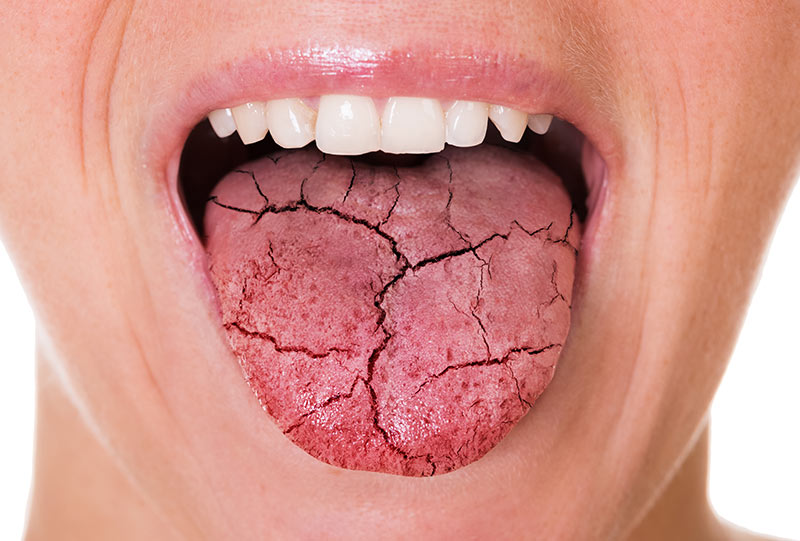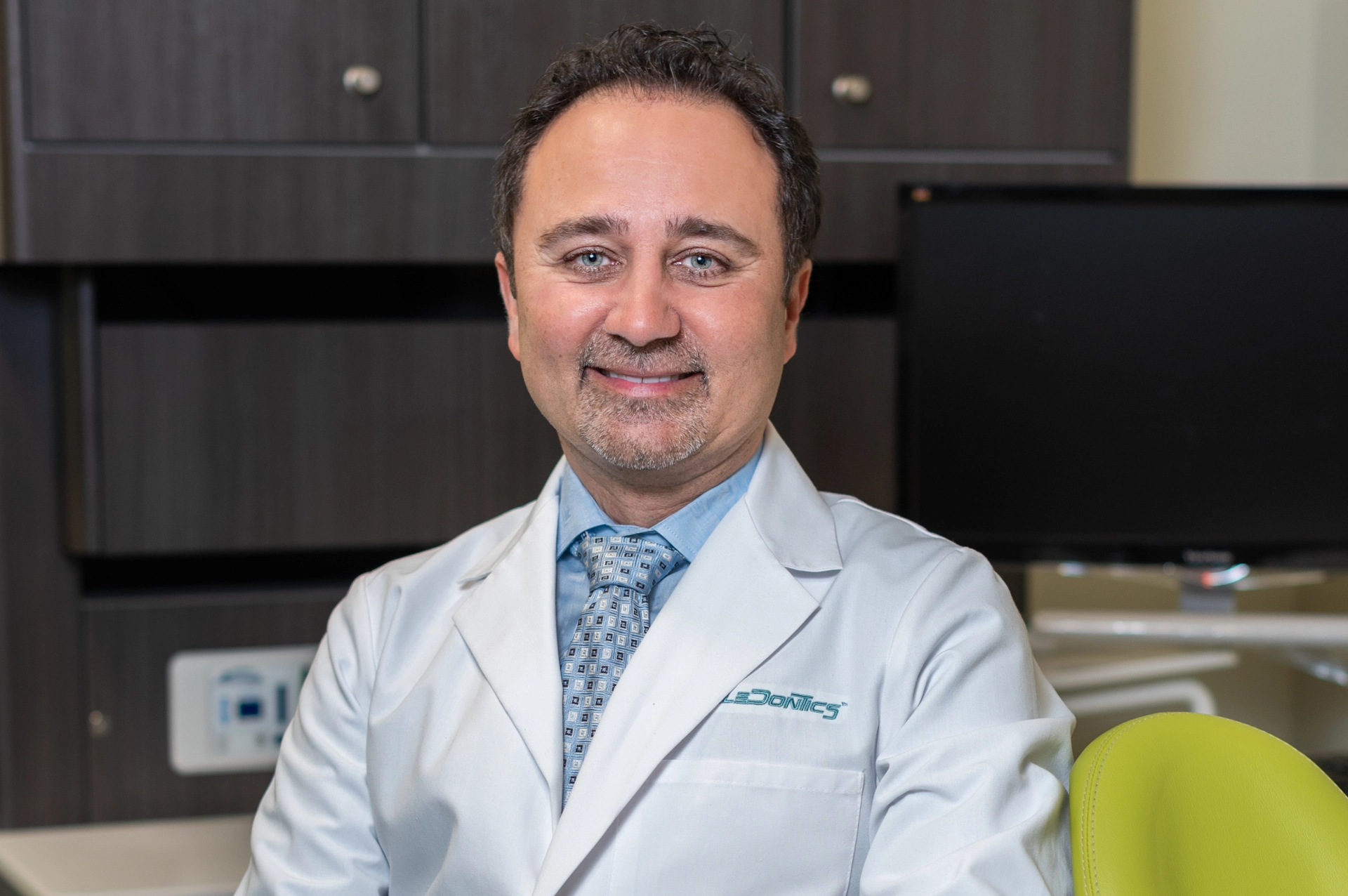
Saliva is an essential component in your mouth that helps maintain oral health. Without enough saliva, you may be more susceptible to tooth decay since the saliva helps to wash away bacteria and food.
While there are preventative measures you can take to prevent dry mouth, sometimes these measures do not work, as your dry mouth could be indicative of an underlying condition. Saliva helps keep your mouth moist, enables you to digest food, prevents bad breath and gum disease, and protects your teeth’s enamel.
Causes of Dry Mouth
A dry mouth, also known as xerostomia, occurs when your salivary glands are not producing enough saliva in your mouth. Often, this happens when you are dehydrated and do not have enough fluid to produce enough saliva. Another common reason you may experience dry mouth is if you are nervous or anxious.
Whether you or your child are experiencing a dry mouth, some more serious reasons can cause dry mouth. If you are not feeling anxious and are not dehydrated, you are likely wondering, “Why is my mouth so dry?” and “What is a dry mouth a sign of?”
A dry mouth can be caused by a medical condition or an underlying problem, including:
- Diabetes: Diabetes is a lifelong condition that causes blood sugar levels to become too high, affecting how your body turns food into energy.
- Medication: Many medications can contribute to a dry mouth, such as antihistamines, antidepressants, or diuretics. If dry mouth is a side effect of the medication, it will be listed on the medicine as a possible side effect.
- Blocked Nose: You may have a blocked nose if you have allergies, a cold, or the flu. When you have a blocked nose, you may breathe out of your mouth while sleeping, causing a dry mouth at night.
- Mouth Breathing: Aside from temporary congestions, the growth and development of the mouth, a tongue-tie or several other factors can cause mouth breathing during the day or during sleep which can dry out the mouth.
- Radiation Therapy: Radiation therapy is used to help kill cancer cells, or it can help slow the growth of cancer cells. If you are going through radiation therapy, you may experience a dry mouth as a possible side effect.
- Sjogren’s Syndrome: This is a disorder of your immune system known for causing a dry mouth and dry eyes.
- Tobacco Use: While tobacco use has many harmful effects, it can also contribute to a dry mouth.
- Drinking Alcohol: Having occasional drinks will not cause a dry mouth, but if you are a heavy drinker, you may experience a dry mouth more often than an occasional drinker.
Symptoms of Dry Mouth
If you are not producing enough saliva, you may notice these signs and symptoms of a dry mouth most or all of the time:
- A dry or sticky feeling in your mouth
- Bad breath
- Thick and stringy saliva
- Hoarseness
- Scratchy or sore throat
- Difficulty swallowing, chewing, or speaking
- A changed sense of taste
- Grooved or dry tongue
- Difficulty wearing dentures
- Feeling thirsty
- Cracked lips
- Burning sensation in your mouth
In addition to experiencing these symptoms of dry mouth, not having enough saliva in your mouth can increase your risk of developing a yeast infection (thrush), infections, and mouth sores, and it can cause lipstick to stick to your teeth.
Dry Mouth Remedies
You can do a few things to help treat your dry mouth and keep it moist.
- Drinking more water is essential to help treat dry mouth. Increasing your fluid intake can help fight and prevent dry mouth. You should drink at least eight glasses of water a day.
- Avoid alcohol, alcohol-based mouthwashes, smoking, and caffeine, as these can all contribute to dry mouth or make dry mouth feel worse.
- Slowly suck on ice cubes to help moisten your mouth.
- Suck on sugar-free candy or chew sugar-free gum to help stimulate your salivary glands.
When to See a Doctor
While a dry mouth is typically easy to treat yourself, sometimes it is necessary to seek help from your doctor. You should contact your dentist if:
- Your dry mouth does not go away
- You feel burning in your mouth
- You are experiencing difficulty swallowing
- There are white patches in your mouth
When you see a doctor about your dry mouth, the doctor will review your medical history, review your current medications, and examine your symptoms. Your dentist may prescribe a fluoride treatment at home and administer topical fluoride treatments in the office.
Your dentist may also encourage you to use antibacterial mouthwashes or xylitol gum to help stimulate your salivary glands. Your dentist or general practitioner may also take images of your salivary gland or administer a salivary flow collection test to measure your saliva production.
Causes of Dry Mouth: FAQs
Is there a deficiency that causes dry mouth?
Deficiencies in riboflavin or vitamin A can cause you to experience a dry mouth. While these conditions are rare, they can be treated by a medical professional.
What does a dry mouth indicate?
A dry mouth can simply mean you are dehydrated or experiencing anxiety. If you wonder, “Why is my mouth so dry?” and you are not anxious or dehydrated, it can also indicate an underlying medical condition.
Why is my dry mouth getting worse?
If your dry mouth is not improving, even after taking measures to prevent it, it can be due to an underlying medical condition. If your dry mouth is not improving after taking the necessary steps to prevent or end it, you should contact your doctor.
Conclusion
A dry mouth is typically preventable and can be fixed on your own, but there are times when it is necessary to contact your doctor to help treat your dry mouth.
Your mouth is the gateway to your body and the most important organ for improving your health. Reading the book If Your Mouth Could Talk by Dr. Kami Hoss can help you better understand the relationship between oral and general health, and even the causes of dry mouth.
This book contains many helpful dental hygiene resources and guides explaining the importance of brushing, flossing, and maintaining oral health.
Whether you want to learn more about maintaining good oral health for yourself or your child, Dr. Kami Hoss’s book, “If Your Mouth Could Talk” can provide numerous resources on how to keep your mouth healthy.

